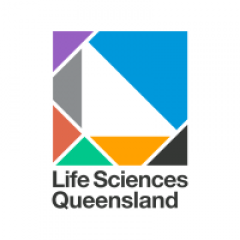The Queensland Alliance for Agriculture and Food Innovation (QAAFI) — a research institute of The University of Queensland (UQ) that is supported by industry and the Queensland Government, and a Life Sciences Queensland (LSQ) member — has been a driving force in the agricultural science landscape for more than 10 years, with 2020 bringing further breakthroughs in innovation, as well as a chance to reflect on key highlights over the last 12 months.
One of the world’s leading research providers in tropical and sub-tropical agriculture and food production, QAAFI’s team of researchers work across crops, horticulture, animals, and nutrition and food sciences, and are supported by industry and the Queensland Government to aid in developing the competitiveness and sustainability of tropical and sub-tropical agriculture and food sectors through high-impact science.
QAAFI’s inaugural Director and current Professor of Innovation in Agriculture, Professor Robert Henry, said despite challenges faced by many throughout 2020 due to COVID-19, the Institute’s work in the agriculture and food production space in was integral in bringing agricultural science to the forefront, and furthering work on some key projects with the potential to impact millions around the globe.
“In 2020 and throughout our history, one of the key areas we’ve worked hard to contribute to is promoting the diversity of life sciences in Queensland through our work in agriculture and food. With an increased focus on biomedical science — particularly last year with the pandemic — it’s been important to show the breadth of research in Queensland across varied sectors, bringing Queensland’s strong potential for agricultural innovation to the forefront,” Professor Henry said.
“Last year saw some real progress in terms of our work in food sustainability for low-income countries, crop protection, and exploring the potential in Australia’s own unique produce.”
Working towards food sustainability in Africa
Through its new venture Hy-Gain — a multi-million-dollar international collaborative research project led by Professor Anna Koltunow with funding support from UQ, the Bill & Melinda Gates Foundation, research collaborators and the Queensland Government — QAAFI last year year kicked off initial research into the exploitation of quirks in plant reproduction to boost yields in sub-Saharan Africa’s staple sorghum and cowpea crops.
The work aims to empower smallholder farmers to retain and sow high-yielding hybrid seeds for generations, through equipping high-yielding hybrid seeds with the genetic switches to allow it to produce plants that are identical clones of the parent — removing the need for new hybrid seeds to be purchased each year.
“In Hy-Gain, we are developing plant prototypes to test if we can lock in those valuable hybrid characteristics over generations when the hybrid seed is planted, flowers, and produces more seed,” Professor Henry said.
“This technology could enable much more effective plant breeding and seed production at a time when the grains industry is dealing with the challenge of maintaining yields under increasingly hotter and drier growing conditions.”
Celebrating the opening of the ARC Research Hub for Sustainable Crop Protection
Announced late 2019 to share in $18.1 million in Federal Government funding through an Australia Research Council (ARC) Industrial Transformation Research Hubs grant, QAAFI’s ARC Research Hub for Sustainable Crop Protection aims to develop and commercialise an innovative biological alternative to chemical fungicides targeting economically significant diseases of broadacre and horticultural crops — with 2020 bringing significant progression in building on UQ’s BioClay™ smart crop protection technology.
The Hub, led by Professor Neena Mitter, officially opened its door in August 2020.
Comprising a multidisciplinary international team, including science, commercial and policy experts, the Hub’s goal is to increase productivity, market access and enhanced environmental credentials of Australian crops.
“The Hub is moving fast-forward, producing promising insights on developing BioClay™ to target specific fungal diseases,” Professor Henry said.
Unlocking the potential of uniquely Australian foods
The ARC Training Centre for Uniquely Australian Foods, launched in 2019 and led by QAAFI’s Associate Professor Yasmina Sultanbawa, is a collaborative project involving engagement with Indigenous groups to bring Australian native foods with proven health benefits — including Kakadu plums, bunya nuts, wattle seed and honey from native flora — to the world stage, highlighting untapped potential in terms of medicinal and nutritional value.
“We are working with Indigenous communities across Australia, food industry entrepreneurs and a research team spanning law, engineering, food science and the social sciences to create a new agri-food sector based on uniquely Australian foods,” Professor Sultanbawa said.
“This training centre represents the largest research effort ever undertaken on behalf of the Australian native foods sector. “We are developing a different kind of business model: an enterprise that is Indigenous-owned and controlled and a business model that fits the communities.”
A message from LSQ
LSQ Chief Executive Officer, Clare Blain, said QAAFI has been an active member of LSQ since its inception, aligning heavily with LSQ’s mission to heal, fuel — and more specifically — feed the world.
“QAAFI’s vision to generate sustainable agriculture and food achieved through science and innovation is a vital objective not only in terms of generating technologies that have the potential to impact food and agricultural sustainability on a global scale, but in shining a light on Queensland and Australia’s strong capabilities and expertise in this area,” she said.
“We’re proud to have supported QAAFI through our networking initiatives and advocacy work, to assist the organisation in reaching new heights in 2020 and beyond.”
Case Study Parties

Professor Robert Henry
Professor of Innovation in Agriculture
Centre for Crop Science (QAAFI)

Prof Anna Koltunow
Professorial Research Fellow
Centre for Crop Science (QAAFI)

Prof Neena Mitter
Centre Director
Centre for Horticultural Science (QAAFI)

Prof Yasmina Sultanbawa
Professorial Research Fellow
Centre for Nutrition and Food Sciences (QAAFI)
The Queensland Alliance for Agriculture and Food Innovation is a research institute at The University of Queensland, established with and supported by the Queensland Department of Primary Industries.

